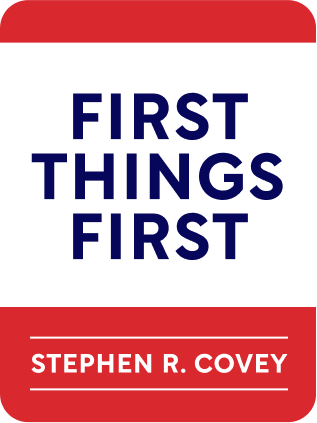

This article is an excerpt from the Shortform book guide to "First Things First" by Stephen R. Covey. Shortform has the world's best summaries and analyses of books you should be reading.
Like this article? Sign up for a free trial here .
Why is it important to listen to your conscience? And how do you know if the voice you’re hearing is your conscience or the influence of something else?
To live a principled life, you must listen to your conscience and act accordingly. Your conscience will always point you in the right direction.
Keep reading to understand why it’s important to listen to your conscience and how to recognize its voice.
Listen to Your Conscience and Make Principle-Centered Choices
To live a principle-centered life, you must commit to listen to and act on what your conscience dictates. Your conscience will always point you toward true north principles, which ensure the greatest quality of life.
Think for a moment about a relationship in your life that’s deeply important to you and that you feel needs to be improved. What is something you could do that would greatly improve that relationship? How do you know?
Most likely, you don’t know from specific experience or from a process of logical thinking — you just know.
That sense of certainty means the knowledge came from your conscience. The more you listen to your conscience, the more you’ll be able to recognize and act according to its influence. It takes time, effort, and integrity — it’s not always easy to do what your conscience tells you is right — but following your conscience is the only way to live a principle-centered life that cultivates great quality of life.
Ask with Intent
When you ask your conscience what you should do, ask not out of curiosity, but rather with a commitment to follow through on what you hear.
When you ask with intent, you’re being humble enough to acknowledge that there are principles that are out of your control, but which govern life and determine the best course of action for you to take. Asking with intent is submitting to those principles.
When you face moments of choice, it helps to have specific questions that guide the way you ask your conscience how to act. The basic questions are:
- Does this fall in my Circle of Influence?
- Is this in my Center of Focus?
- Is there an alternative solution?
- What principles apply to this situation? And how do they apply?
In addition, there are other questions that can help you determine the principle-based choice to make. These will be most effective if they’re worded in a way that speaks to you personally but should be along the lines of:
- What’s the most effective way to use my time in this situation?
- What’s most important to me?
- What’s the right thing to do?
Pausing to ask these questions gives you a moment to reconnect with principles and empowers you to channel those principles and your conscience as you make your choice. This pulls you away from making a knee-jerk decision based on urgency, or stubbornly sticking to your predetermined schedule without first considering all the options.
Listen Without Making Excuses
Sometimes, when you hear what your conscience advises, you may not like the answer. It may be different than what you had planned, or sound like more work than you feel like doing. In these situations, it can be tempting to start rationalizing why you shouldn’t listen to your conscience.
Rationalizing and resisting creates disharmony and inner tension. You may divert responsibility from yourself and blame circumstances or other people as justification for not acting according to your conscience. That kind of behavior can cause those people to respond negatively to you, which feeds into your rationalization but also creates a feedback loop of negative synergy called collusion, where each of your behavior is causing and justifying the other person’s negative behavior.
Say you’ve had a long, hard day at work, and all day you’ve been looking forward to coming home, relaxing, and watching a movie after dinner. But at dinner, you sense that your son has something troubling on his mind. You feel your conscience pull at you — you should make some time to sit and talk to him about what’s going on — but you don’t want to; you’re tired and you’ve been looking forward to a quiet evening.
As a form of compromise, you may make a half-hearted attempt at the dinner table to ask what’s wrong, but your son can tell you’re not entirely focused and invested so he closes up and insists he’s fine. Out of resentment, your son may lash out or leave the table, leading you to blame him for not opening up and using that as an excuse for going ahead with your evening plans, instead of acknowledging that you didn’t listen to your conscience in the first place.
Each time you don’t make principle-centered choices — and instead make excuses for doing the opposite — you add to a wall of justifications and rationalization standing between you and principled living.
In order to live with integrity, you must learn to listen not only to your conscience, but also to your response.
Be Courageous
It takes courage to pause in the face of a moment of choice, to listen to your conscience, and to act accordingly. It takes courage to be self-aware and honest about your motives and desires, and to make principle-centered decisions that may be uncomfortable or unpopular.
Imagine you have plans for the day that you feel will be renewing and important, but you are then presented with an opportunity to take on a responsibility that, upon reflection, deeply aligns with your mission and values. Living with integrity means taking that opportunity, despite the fact that it would prevent you from following through on your previous plans.
However, you may still feel anxious and stressed by the demands of the responsibility and frustrated by the fact that you aren’t getting to do the self-renewing plans you’d had in mind. These feelings don’t contradict with the fact that your choice was principle-centered; you can live with integrity and still have a reaction like this. But with courage, you can choose to let go of that frustration and anxiety. You can make the choice to release those rationalizations, justifications, and “if only” thoughts that are standing between you and the peace you can feel from making the principle-centered choice.
Checklist: Cultivate Integrity to Make Principle-Centered Decisions
When people live by their conscience, they feel a deep inner peace and high quality of life. They don’t waste their energy rationalizing or blaming others. They feel a sense of stewardship to contribute to a higher purpose and they have a high balance in their Personal Integrity Accounts. Use these strategies to develop your ability to listen to and live by your conscience in moments of choice.
- Pause and connect with your conscience as you set goals during your weekly planning session. Notice your thought process and how it feels to listen to your conscience during these pauses, then try to access that when you’re making a decision during moments of choice.
- Come up with a specific question to ask yourself to help you connect with your conscience during moments of choice. Review the question each morning and several times during the day, so it’s always in the forefront of your mind when you do have to make a spontaneous decision.
- Think about the balance in your Personal Integrity Account each morning. As you go through the day, write down any deposits and withdrawals.
- Make a goal to go through each of the three steps for making principle-centered decisions — ask with intent, listen without making excuses, and be courageous — every time you face a moment of choice.
- Notice when you’re confronted with moments of choice, and jot down when you take the time to connect with your conscience, and the results of doing so.
- In at least one moment of choice each day, pause and write down which factors are pressing upon you (e.g. urgency, the social mirror, your or others’ expectations). Next to each one, write how important it is. As you do this, notice whether these factors’ influence on you changes as you become aware of them.
- Reflect on your experiences in moments of choice. Think about how you approach them, the decisions you make, how you feel about those decisions, and what happens as a result of your choices. Learn from your experiences.

———End of Preview———
Like what you just read? Read the rest of the world's best book summary and analysis of Stephen R. Covey's "First Things First" at Shortform .
Here's what you'll find in our full First Things First summary :
- How to work effectively, not just efficiently
- Why you need to think more about what you're spending time on than how much time you're spending
- The 6 steps to effectively schedule and prioritize important activities






